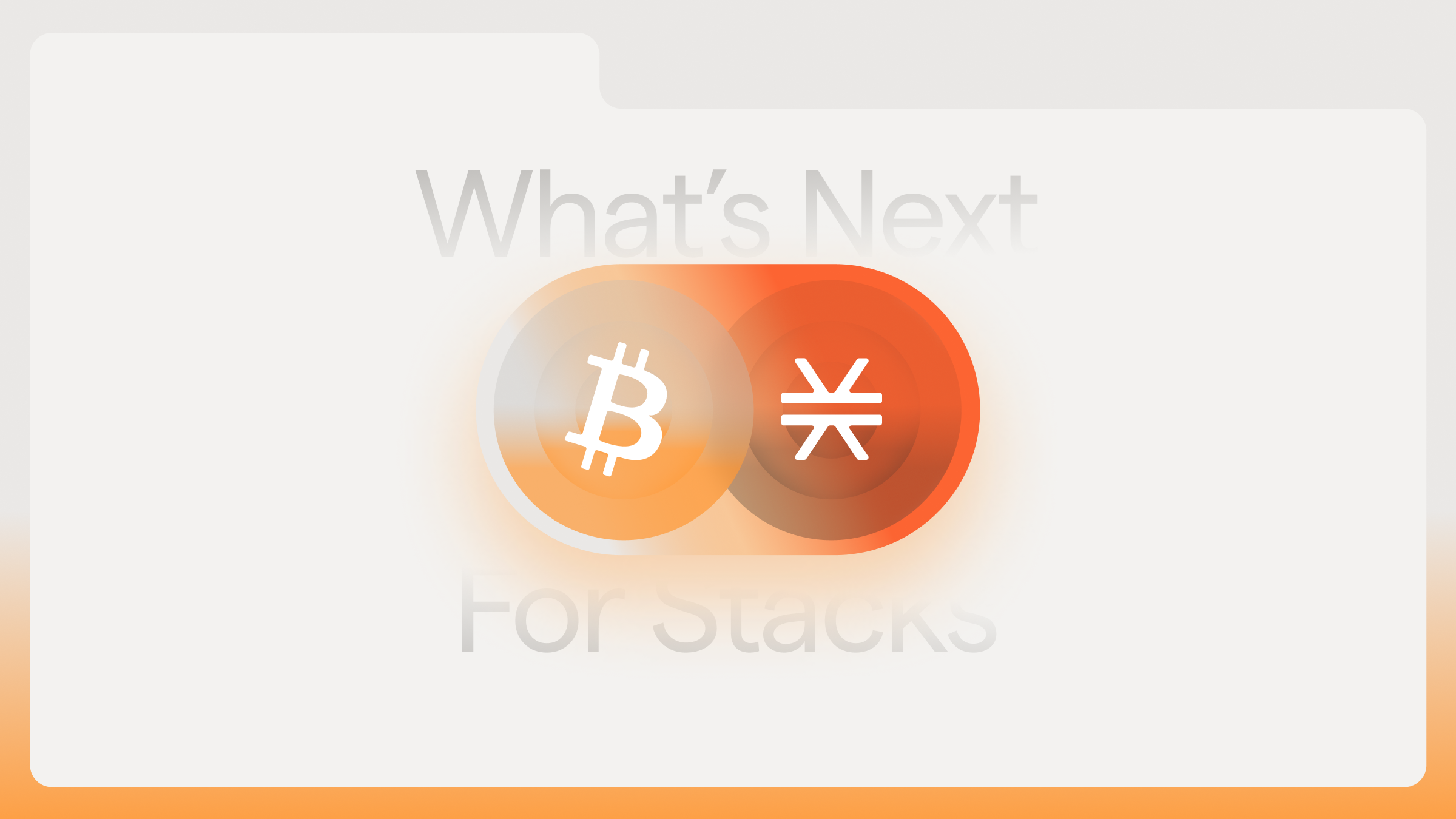Stacks 2.0 Status Update
Since the launch of the Stacks 2.0 blockchain on Thursday, January 14th, independent entities and miners throughout the Stacks ecosystem have been working hard to integrate, use, and improve the network further. The contributions by engineers all over the world and new listings and integrations have all been exciting to see. The launch event has been streamed over 7,000 times and more than 15K+ people have newly joined Stacks related Telegram and Twitter recently.
As expected, there have been things that have gone really smoothly upon launch and some areas that need improvement. This post is meant to give you a high-level view of where things are on the Stacks blockchain so you can have visibility on issues that may be affecting you. Remember that Stacks is an open-source project and decentralized ecosystem, so all code improvements happen transparently and anyone can submit issues or enhancements.
Overall Network Status
The new consensus algorithm, mining, and game theory is working as designed; the Stacks 2.0 chain is coming up on 550 blocks, there have been 40+ miners on the network with 1,000+ observed Stacks nodes! Miners have been successfully winning blocks with top miners reporting upwards of 300% returns and Stacking rewards are currently trending toward 15%-20% yield in BTC when it automatically starts in the next reward cycle.
Overall, the Stacks blockchain is healthy, stable, and behaving as expected. You can keep an eye on the network with the new explorer at explorer.stacks.co.
Stacks is a new blockchain with a unique consensus mechanism between Bitcoin and Stacks; it's expected that integrating the new blockchain will require some effort from the parties doing the integration and the integration work can take from several days to a week or more.
Known Issues
- Deposit times with exchanges: Some community members have reported long deposit times with exchanges. Engineers from Hiro PBC are working with various exchanges to help diagnose integration issues to get deposits/withdraws to full speed. This issue is not affecting the overall network but specific cases at exchanges. It should not impact user funds and people should watch out for updates from respective exchanges.
- Wallet confusion: There is a wallet built into the Stacks browser extension that some users are confusing for the Stacks wallet. For sending and receiving Stacks, the desktop wallet should be used, the extension wallet is only for testing purposes and labeled in the interface as such. Please use: https://www.hiro.so/wallet
- Mining: Independent miners have been sending feedback and potential improvements (for example to 'smoothing' function) over the past few days. There are some tactical improvements to the miner component in stacks-node that we are tracking here.
Github is the default place to track known issues or improvements/suggestions for the open-source software. Below are some examples:
- Slow propagation of the mempool
- Stacking delegation support for the Stacks Wallet and for Stacks.js
Resolved
Over the weekend, some other issues, mostly related to performance or display of information were resolved:
- Stack.js pointing to old node URLs
- Stacks Blockchain API issues were resolved over the weekend
- Bitcoin operation handling was added
- Missing transaction events were added
- Rosetta was updated to support mainnet nodes
We are humbled by the level of interest and excitement after the Stacks 2.0 mainnet launch in the ecosystem. Please see this forum post for more detailed technical updates.
Team members from various entities are answering questions in Telegram, Discord, Twitter etc and we appreciate all the encouragement and feedback the project is receiving. In many ways, this is just the beginning!
Get more of Stacks
Get important updates about Stacks technology, projects, events, and more to your inbox.
.png)



